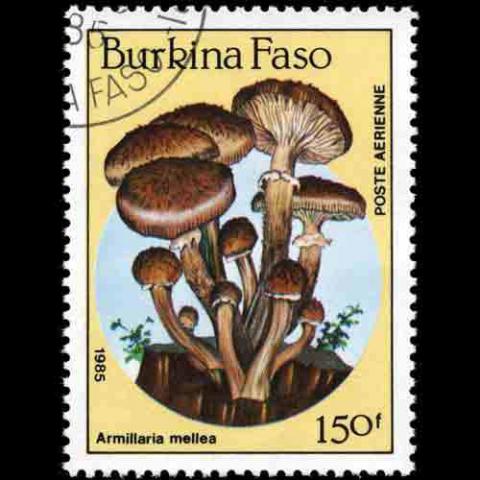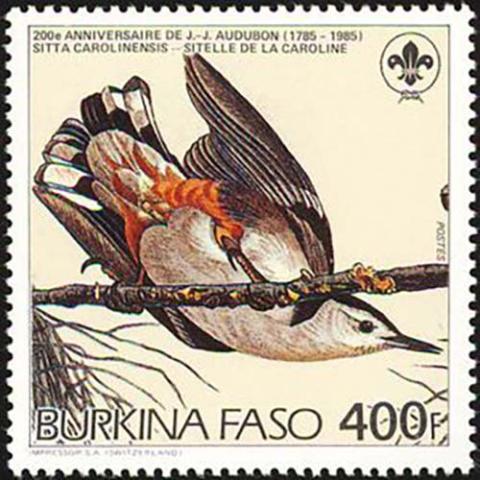Capital: Ouagadougou
Burkina Faso (UK: /bɜːrˌkiːnə ˈfæsoʊ/, US: /- ˈfɑːsoʊ/; French: [buʁkina faso]) is a landlocked country in West Africa. It covers an area of around 274,200 square kilometers (105,900 sq mi) and is surrounded by six countries: Mali to the north and west; Niger to the east; Benin to the southeast; Togo to the southeast; Ghana to the south; and Ivory Coast to the southwest. The July 2019 population estimate by the United Nations was 20,321,378. The country's official language of government and business is French. Roughly 50% of the population speaks the Mossi language natively. Formerly called the Republic of Upper Volta (1958–1984), the country was renamed "Burkina Faso" on 4 August 1984 by erstwhile President Thomas Sankara. Its citizens are known as Burkinabé (/bɜːrˈkiːnəbeɪ/ bur-KEE-nə-bay). Its capital is Ouagadougou.
The Republic of Upper Volta was established on 11 December 1958 as a self-governing colony within the French Community, and on 5 August 1960 it gained full independence, with Maurice Yaméogo as President. After protests by students and labour union members, Yaméogo was deposed in the 1966 coup d'état, led by Sangoulé Lamizana, who became president. His rule coincided with the Sahel drought and famine, and facing problems from the country's traditionally powerful trade unions he was deposed in the 1980 coup d'état, led by Saye Zerbo. Encountering resistance from trade unions again, Zerbo's government was overthrown in the 1982 coup d'état, led by Jean-Baptiste Ouédraogo.
The leader of the leftist faction of Ouédraogo's government, Thomas Sankara, was made Prime Minister but was later imprisoned. Efforts to free him led to the popularly-supported 1983 coup d'état, in which he became president. Sankara renamed the country Burkina Faso and launched an ambitious socioeconomic program which included a nationwide literacy campaign, land redistribution to peasants, railway and road construction and the outlawing of female genital mutilation, forced marriages and polygamy. Sankara was overthrown and killed in the 1987 coup d'état led by Blaise Compaoré – deteriorating relations with former colonizer France and its ally the Ivory Coast were the reason given for the coup.
In 1987, Blaise Compaoré became president and, after an alleged 1989 coup attempt, was later elected in 1991 and 1998, elections which were boycotted by the opposition and received a considerably low turnout, as well as in 2005. He remained head of state until he was ousted from power by the popular youth upheaval of 31 October 2014, after which he was exiled to the Ivory Coast. Michel Kafando subsequently became the transitional president of the country. On 16 September 2015, a military coup d'état against the Kafando government was carried out by the Regiment of Presidential Security, the former presidential guard of Compaoré. On 24 September 2015, after pressure from the African Union, ECOWAS and the armed forces, the military junta agreed to step down, and Michel Kafando was reinstated as acting president. In the general election held on 29 November 2015, Roch Marc Christian Kaboré won in the first round with 53.5% of the vote and was sworn in as president on 29 December 2015.
Reference: Wikipedia



